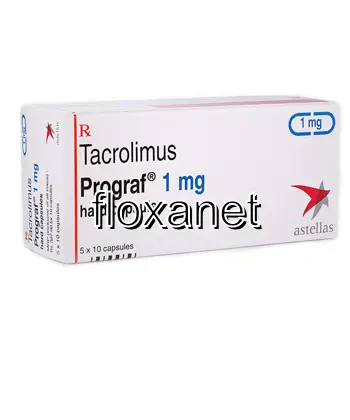| Package | Dosage | Price | Price per Dose | |
|---|---|---|---|---|
| Dosage: 0,5mg | ||||
| 90 pill | 0,5mg | NZD832.24 | NZD9.23 | |
| 60 pill | 0,5mg | NZD591.45 | NZD9.87 | |
| 30 pill | 0,5mg | NZD329.61 | NZD10.99 | |
| 20 pill | 0,5mg | NZD231.42 | NZD11.57 | |
| 10 pill | 0,5mg | NZD123.88 | NZD12.48 | |
| Dosage: 1mg | ||||
| 90 pill | 1mg | NZD1,168.89 | NZD13.00 | |
| 60 pill | 1mg | NZD836.92 | NZD13.96 | |
| 30 pill | 1mg | NZD493.26 | NZD16.41 | |
| 20 pill | 1mg | NZD367.01 | NZD18.33 | |
| 10 pill | 1mg | NZD205.70 | NZD20.67 | |
| Dosage: 5mg | ||||
| 20 pill | 5mg | NZD1,115.12 | NZD55.71 | |
| 10 pill | 5mg | NZD624.18 | NZD62.40 | |

Tacrolimus Description
Introduction to Tacrolimus
Tacrolimus is a powerful immunosuppressive medication primarily used to prevent organ rejection in transplant patients. It has revolutionized transplant medicine by significantly increasing the success rates of organ transplants. As a calcineurin inhibitor, Tacrolimus works by inhibiting T-lymphocyte activation, which is essential in the body's immune response. This suppression reduces the likelihood of the immune system attacking the transplanted organ, thus helping maintain organ function over the long term.
Uses and Medical Applications
This medication is mainly prescribed for patients undergoing kidney, liver, or heart transplants. It is often used in conjunction with other immunosuppressive drugs to optimize the protective effect while minimizing side effects. Besides transplant medicine, Tacrolimus is also applied topically for severe eczema or dermatitis that does not respond to conventional treatments. These diverse applications highlight the versatility of the drug in managing immune-related conditions.
Mode of Action and Pharmacology
Tacrolimus acts by binding to an intracellular protein called FK-binding protein 12 (FKBP12). This complex then inhibits calcineurin, a phosphatase enzyme. By blocking calcineurin, Tacrolimus prevents the transcription of interleukin-2 and other cytokines essential for T-cell activation. Consequently, it dampens the immune response, reducing the risk of organ rejection. The medication is absorbed through the gastrointestinal tract, with blood levels carefully monitored to maintain efficacy while avoiding toxicity. It has a narrow therapeutic window, necessitating regular blood tests for patients on long-term therapy.
Administration and Dosage
Tacrolimus is usually available in capsule form, with doses individualized based on the patient's weight, function of the transplanted organ, and blood levels. It is often prescribed alongside corticosteroids and other immune suppressants. Patients are typically advised to take the medication at the same time each day to maintain stable blood levels. The healthcare provider will adjust the dosage based on periodic blood tests and response to treatment, aiming to minimize side effects while providing sufficient immunosuppression.
Potential Side Effects and Risks
While Tacrolimus is effective, it can cause several side effects. Common issues include tremors, headaches, hypertension, and gastrointestinal discomfort. More serious risks involve kidney toxicity, neurotoxicity, and an increased susceptibility to infections. Because of its impact on kidney function, regular monitoring of renal parameters is essential. Long-term use may also lead to an increased risk of certain cancers, such as lymphoma. Patients should be aware of these risks and report any unusual symptoms to their healthcare provider promptly.
Precautions and Interactions
It is vital for patients to inform their doctor about all medications they are taking, including over-the-counter drugs and herbal supplements. Tacrolimus can interact with various medicines, such as certain antibiotics, antifungals, and antihypertensives, which may either increase toxicity or reduce effectiveness. Special caution is necessary for individuals with liver disease, infections, or a history of cancer. Pregnant or breastfeeding women should discuss potential risks and benefits with their healthcare provider before starting Tacrolimus.
Conclusion
Tacrolimus remains a cornerstone in organ transplantation medicine and offers significant benefits in preventing rejection. However, its use requires careful management and monitoring due to potential side effects and drug interactions. Patients on Tacrolimus should maintain regular communication with their healthcare team to ensure the safe and effective use of this medication. When managed properly, Tacrolimus can greatly improve the quality of life for transplant recipients and those with immune-mediated conditions.
